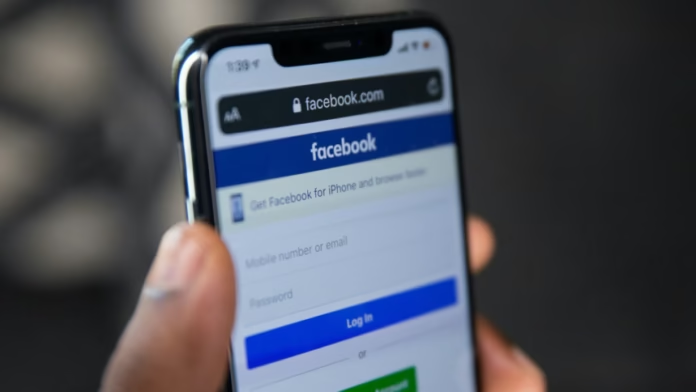When Facebook’s Search Went Dark
Picture this: you’re trying to pull up an old photo, maybe from a family trip years ago, or that viral meme a friend shared last summer. Normally, Facebook’s search bar is your time machine. But suddenly, nothing shows up. No posts, no photos, as if the memories never existed.
That’s what millions of users experienced this week during what’s now being dubbed “The Great Facebook Darkness of 2025.”
Across the globe, people reported that Facebook’s search function had stopped working for posts and photos, effectively hiding trillions of pieces of content. For a platform that prides itself on being a digital scrapbook of our lives, this felt like a major blackout.
What Exactly Happened?
So far, Facebook hasn’t given an official explanation. That’s unusual in itself. Normally, tech companies at least acknowledge an outage on their status pages or social media channels. Instead, silence.
Was it a glitch? A system update gone wrong? Or something more deliberate, like a test of new search restrictions? We don’t know yet. What we do know is that it left users frustrated and scrambling for alternatives.
Even professional researchers and journalists — people who rely heavily on Facebook search to dig up old posts, track misinformation, or verify sources — found themselves cut off from a vital tool.
The Researcher Who Named It
One voice that’s stood out during this chaos is Henk van Ess, an online researcher known for his work in digital investigations. On his platform Digital Digging, he labeled the outage “The Great Facebook Darkness of 2025.”
It’s a dramatic phrase, but honestly? It fits. For over a decade, Facebook has been the searchable archive of modern life. Losing access to that database even temporarily feels like someone locked the doors to the world’s largest library without warning.
Workarounds People Are Trying
With search disabled, users started hunting for alternatives. Van Ess pointed to a tool called Whopostedwhat, which can dig up certain old posts. But here’s the catch:
-
It works mainly for text and videos.
-
Photos remain unsearchable, leaving a huge gap for anyone trying to find visual content.
That’s a big deal. Think about how many of our memories, jokes, or even news stories live in image form on Facebook. For now, they’re buried, at least until the platform restores its search.
Why This Matters More Than You Think
At first glance, a Facebook search outage might sound like a minor inconvenience. But when you step back, the implications run deeper:
-
History Becomes Harder to Access: Facebook has become a historical record of the past 20 years. Cutting off the search makes it harder to revisit those archives.
-
Researchers Lose a Key Tool: Journalists, academics, and fact-checkers often use Facebook search to track narratives, verify claims, or analyze trends. This outage blocks their work.
-
Businesses Take a Hit: Many small businesses rely on customers searching for past posts or photos to discover services. Without search, discoverability drops.
It’s not just about finding an old vacation selfie. It’s about accessibility, transparency, and how much power one company holds over the digital memories of billions of people.
Could This Be More Than a Glitch?
Here’s where speculation kicks in. Some observers wonder if this isn’t just a bug but part of a deliberate shift in how Facebook handles search.
Why would they do that? A few possibilities:
-
Privacy Concerns: By limiting search, Facebook might reduce the risk of sensitive old posts resurfacing.
-
Legal Pressures: Governments worldwide have been pressuring platforms to tighten data access. Disabling broad search could be a compliance move.
-
Algorithmic Experimentation: Maybe Facebook is testing new ways to prioritize “fresh” content over historical archives.
None of these explanations is confirmed. But the lack of communication from Meta fuels speculation.
A Personal Reflection
I remember trying to dig up a funny status I wrote in 2010. Normally, a quick keyword search brings it back. This time? Nothing. It felt strange, almost unsettling, to realize how much I’ve come to rely on Facebook as a memory bank.
That’s what this outage highlights: we’ve entrusted a private company with storing and indexing our digital lives. When the switch flips off, we’re left powerless.
The Bigger Question: Who Owns Our Memories?
The Facebook search outage is more than a temporary disruption. It raises a deeper question: Who controls the accessibility of our digital past?
-
If Facebook can make trillions of posts unsearchable overnight, what else can it hide?
-
Should we be archiving our own content outside these platforms to avoid losing access?
-
How much responsibility should social media companies have to keep archives searchable?
These are questions worth asking now, before they become permanent realities.
Lessons for Everyday Users
For most of us, this incident is a wake-up call. Here’s what we can take away:
-
Back Up Important Content: Don’t rely on Facebook (or any platform) as your only storage. Download photos, save posts, and keep local copies.
-
Expect Impermanence: Just because something is online doesn’t mean it will always be accessible. Platforms can change rules overnight.
-
Use Alternative Tools: Keep an eye on third-party tools like Whopostedwhat — they can fill gaps when platforms fall short.
Why This Outage Matters
When you step back, the Facebook search outage isn’t just about a broken feature. It’s about control, transparency, and trust.
For users, it’s a reminder that we don’t truly own our digital memories when they’re locked behind corporate walls. For researchers, it’s a roadblock in the fight for truth and accountability. For Facebook, it’s a test of how much disruption people will tolerate without demanding answers.

